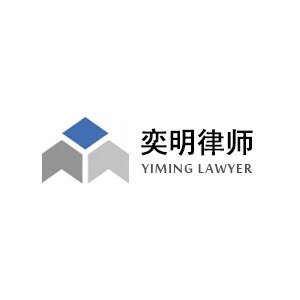Best Education Law Lawyers in Beijing
Share your needs with us, get contacted by law firms.
Free. Takes 2 min.
List of the best lawyers in Beijing, China
About Education Law in Beijing, China
Education Law in Beijing, China, is a component of Chinese Education Law, which governs all aspects of education within the nation. It encompasses a wide variety of regulations and policies designed to ensure the proper administration of educational institutions and the upholding of students' rights. This legal field deals with issues like educational access, curriculum mandates, institutional governance, teachers' rights, and more. Beijing, being the capital city, serves as a hub for significant educational policy-making and reforms.
Why You May Need a Lawyer
Individuals or institutions may seek legal assistance in Education Law for several reasons. These can include disputes over educational rights, issues with school admissions, cases involving discrimination or harassment within educational settings, breaches of education contracts, or when facing disciplinary actions. Both students and educational institutions may encounter situations where an understanding of legal obligations and rights is crucial. Legal expertise can help navigate complex regulations and ensure fair treatment under the law.
Local Laws Overview
Beijing's local education regulations are aligned with national standards but may include specific provisions tailored to the city's context. Key aspects include adherence to national curriculum standards, the protection of students' and teachers' rights, management of foreign educational institutions operating in Beijing, and regulations concerning private education entities. Additionally, Beijing places emphasis on regulations that address educational technology and online learning, considering the city's role in technological innovation.
Frequently Asked Questions
What is the role of the Ministry of Education in Beijing?
The Ministry of Education sets national standards and policies for education across China, including Beijing. It oversees education quality, curriculum standards, and general educational reform.
How are students' rights protected by law in Beijing?
Students in Beijing are protected by laws that ensure nondiscrimination, access to education, and procedural fairness in disciplinary matters. The Education Law of the People's Republic of China provides a framework for these rights.
Are there special rules for foreign institutions operating in Beijing?
Yes, foreign educational institutions must comply with specific regulations concerning operation, curriculum, faculty qualifications, and partnership with local entities to ensure educational standards align with national interests.
What legal requirements exist for private schools in Beijing?
Private schools in Beijing must follow registration requirements, adhere to curriculum standards, ensure qualified staff, and comply with safety and non-discrimination laws.
How can parents contest a school admission decision legally?
Parents can contest school admission decisions through administrative reviews or by lodging complaints with educational authorities. Legal counsel can assist in navigating these processes effectively.
What avenues are available for resolving education disputes?
Disputes can be resolved through mediation, administrative appeals, or legal adjudication. It is advisable to seek legal advice to determine the most appropriate course of action.
How does Beijing address issues of educational equity?
Beijing implements various policies aimed at ensuring equitable access to quality education, addressing disparities between urban and rural areas, and supporting marginalized communities.
What rights do teachers have under Education Law in Beijing?
Teachers in Beijing are entitled to rights concerning employment contracts, fair wages, professional development, and safe working conditions, as prescribed by labor and education laws.
Are there legal considerations for homeschooling in Beijing?
Homeschooling is not explicitly recognized by Chinese law, and families considering this option should understand applicable regulations and the potential need for legal advice.
What should be done in cases of alleged discrimination in schools?
Allegations of discrimination should be promptly reported to school authorities or local education boards. Legal recourse is available if the issue is not adequately addressed.
Additional Resources
For more information, individuals can consult the following resources:
- The Ministry of Education of the People's Republic of China: For national policies and reforms.
- Beijing Municipal Education Commission: For local educational directives.
- Beijing Educational Research Institute: For research and insights on educational policy.
- Legal Aid Centers: Offering assistance and advice for low-income families.
Next Steps
If you require legal assistance in the field of Education Law in Beijing, begin by identifying the nature of your legal issue. Consult with a legal professional specializing in Education Law to explore your options. Utilize available resources, such as government bodies and legal aid centers, and consider engaging with experienced lawyers to ensure your rights and interests are fully protected.
Lawzana helps you find the best lawyers and law firms in Beijing through a curated and pre-screened list of qualified legal professionals. Our platform offers rankings and detailed profiles of attorneys and law firms, allowing you to compare based on practice areas, including Education Law, experience, and client feedback.
Each profile includes a description of the firm's areas of practice, client reviews, team members and partners, year of establishment, spoken languages, office locations, contact information, social media presence, and any published articles or resources. Most firms on our platform speak English and are experienced in both local and international legal matters.
Get a quote from top-rated law firms in Beijing, China — quickly, securely, and without unnecessary hassle.
Disclaimer:
The information provided on this page is for general informational purposes only and does not constitute legal advice. While we strive to ensure the accuracy and relevance of the content, legal information may change over time, and interpretations of the law can vary. You should always consult with a qualified legal professional for advice specific to your situation.
We disclaim all liability for actions taken or not taken based on the content of this page. If you believe any information is incorrect or outdated, please contact us, and we will review and update it where appropriate.









